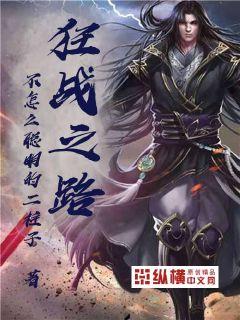
**文章摘要:**
纳粹礼球员:历史背景与道德困境,探讨了纳粹时期德国足球运动员面临的道德抉择及其历史背景。文章首先介绍了纳粹时期德国的政治氛围,随后深入探讨了足球运动在纳粹德国的角色与影响。接着,文章探讨了纳粹礼与足球之间的联系,以及运动员在这一时期所面临的道德困境。最后,文章回顾了历史,并对纳粹礼球员的道德抉择进行了审视与总结。
---
1、政治氛围
纳粹党的崛起带来了德国政治氛围的极端化,国家开始对体育活动进行干预与控制。
纳粹政权借助体育运动,试图塑造德国人的集体意识,推动种族主义和纳粹意识形态。
体育场成为纳粹意识形态的传播场所,运动员不可避免地被卷入政治宣传。
2、足球运动
足球在纳粹德国扮演着重要的角色,被用作政治宣传和国家认同的工具。
纳粹政权将足球比赛用于加强国家凝聚力,鼓舞德国人民的爱国主义情绪。
足球比赛成为纳粹意识形态的传播媒介,运动员被迫面对道德困境与政治压力。
3、纳粹礼与足球
纳粹礼在足球比赛中被强制实施,成为运动员面临的道德挑战之一。
运动员面临着选择,是否遵守纳粹礼以维护个人原则与尊严,还是选择迎合政权以保全职业生涯。
纳粹礼球员的行为在当时引发了广泛的争议和道德困惑,挑战了他们的个人道德观与职业道德。
4、道德抉择与反思
运动员在纳粹时期面临着艰难的道德抉择,他们需要在个人原则和政治压力之间寻找平衡。
纳粹时期的足球运动员的道德选择,反映了当时德国社会的道德沦丧与政治操控。
回顾历史,我们应当审视纳粹礼球员的道德抉择,并从中汲取教训,警惕权力对体育的滥用与道德的扭曲。
总结:
纳粹礼球员的历史背景与道德困境反映了纳粹德国时期的政治压力和道德挑战。运动员在个人原则与政治压力之间艰难抉择,呈现出道德困境的复杂性。通过审视这一历史,我们能够更深刻地理解权力对体育的影响,以及个人道德在极端政治环境下的考验。
Certainly! Here's the structured article on "The Rise and Challenges of Cuban Basketball Players":
**Abstract:**
Cuban basketball has seen both triumphs and tribulations in recent decades. This article explores the journey of Cuban basketball players, highlighting their rise to prominence, the challenges they face within and beyond the sport, and the enduring impact on the national and international stages.
**1、Emergence of Talent**
Cuban basketball has witnessed a surge in talent over the years, marked by grassroots initiatives and national programs aimed at nurturing young athletes. The development of local leagues and academies has provided a fertile ground for budding players to hone their skills and showcase their potential on a larger stage.
Historically, Cuba has produced athletes renowned for their agility and strategic prowess on the court. This foundation has been crucial in shaping the current generation of players, who often emerge from humble beginnings but possess raw talent and a fierce determination to succeed.
In recent years, Cuban basketball federations have intensified efforts to identify and support promising prospects from a young age. Talented individuals are scouted and enrolled in specialized training programs, where they receive coaching and mentorship to refine their technical abilities and tactical understanding of the game.
As a result, Cuban basketball has seen a steady influx of skilled players who are not only competitive domestically but also capable of making significant contributions to international tournaments.
**2、Challenges on the Domestic Front**
Despite the talent pool, Cuban basketball faces formidable challenges within its domestic structure. Issues such as limited funding, outdated infrastructure, and administrative inefficiencies often hinder the sport's growth and competitiveness at the national level.
The Cuban Basketball Federation struggles with financial constraints that affect player development initiatives and infrastructure maintenance. Many training facilities are in need of modernization, and access to quality coaching and resources varies significantly across regions.
Furthermore, the sport faces competition from other popular activities within Cuban culture, diverting potential talent away from basketball. Baseball, for example, remains deeply ingrained in the national psyche and often attracts promising athletes who might otherwise pursue basketball.
These challenges underscore the need for sustained investment in grassroots programs and structural reforms aimed at revitalizing Cuban basketball from the grassroots up.
**3、International Competition and Opportunities**
On the international stage, Cuban basketball players have showcased their skills and resilience, despite facing adversities. Competing against well-funded and highly organized teams from other countries has provided Cuban athletes with invaluable experience and exposure to different styles of play.
Cuban players have historically excelled in regional tournaments such as the Central American and Caribbean Games, where they often dominate competition and secure medals for their country. These achievements not only bolster national pride but also serve as a testament to the talent and dedication of Cuban basketball players.
However, challenges such as limited access to international leagues and restrictive travel policies have restricted opportunities for Cuban athletes to compete at the highest levels abroad. Many promising players find themselves constrained by political and economic factors that limit their ability to pursue professional careers overseas.
Despite these challenges, Cuban basketball continues to produce athletes capable of competing on a global scale, demonstrating resilience and adaptability in the face of adversity.
**4、Future Prospects and Strategic Imperatives**
Looking ahead, the future of Cuban basketball hinges on strategic imperatives aimed at overcoming current challenges and capitalizing on emerging opportunities. Key initiatives include enhancing youth development programs, modernizing infrastructure, and fostering partnerships with international organizations to expand exposure and access for Cuban players.
Investments in coaching education and sports science will be crucial in nurturing the next generation of Cuban basketball stars, equipping them with the skills and knowledge needed to excel in an increasingly competitive global arena.
Furthermore, fostering a supportive ecosystem that encourages collaboration between public and private sectors can help mitigate financial constraints and promote sustainable growth within Cuban basketball.
By addressing these strategic imperatives, Cuban basketball can position itself for continued success and make significant strides towards reclaiming its position among the elite basketball nations of the world.
**Conclusion:**
In conclusion, Cuban basketball has navigated a complex landscape defined by both triumphs and challenges. From the emergence of talented players within a nurturing environment to the obstacles posed by domestic limitations and international competition, Cuban basketball continues to evolve and adapt. Moving forward, strategic investments and reforms will be pivotal in shaping the future trajectory of the sport, ensuring that Cuban athletes can compete and excel on the global stage.
Ultimately, the resilience and passion of Cuban basketball players serve as a testament to their enduring spirit and commitment to the sport, promising a future where Cuban basketball can once again shine brightly.
Certainly! Here's a structured outline and content for the requested article on Shandong Luneng's foreign player lineup analysis and its impact on team tactics.
### 文章摘要
本文旨在深入分析山东鲁能足球俱乐部的外援阵容,探讨这些外援对球队战术风格的影响。通过对每位外援的个人特点、位置布置及其在比赛中的角色分析,揭示他们在整体战术体系中的作用和价值。文章还将探讨外援们如何在中超联赛及亚冠赛场上展现出的不同战术变化,以及他们对球队进攻和防守风格的塑造效应。
---
1、外援个人能力与特点分析
外援个人技术能力、身体素质及心理素质的综合分析,包括技术特点、比赛中的关键表现和对球队的贡献。
外援在不同位置上的适应性和表现,以及他们在比赛中如何展现出独特的技战术风格。
外援在球队中的角色定位,如首发球员、替补席支持者或者战术变阵的关键推动者。
2、外援对球队战术体系的影响
外援在攻防转换中的作用和影响,包括在进攻端和防守端的不同表现和贡献。
战术变化和战术灵活性,外援如何在不同比赛场合下调整自己的角色和职责。
外援与本土球员的配合与默契,如何共同促进球队整体战术水平的提升。
3、中超联赛与亚冠赛场的战术应对
外援在中超联赛与亚冠赛场上的表现差异,战术的调整与适应过程。
外援在面对不同风格对手时的表现特点,以及对球队整体竞争力的提升效果。
外援在国内赛事与国际赛事中的角色转换与表现调整,如何应对赛程密集度的挑战。
4、外援对球队进攻与防守风格的塑造
外援在进攻端的组织能力和得分效率,以及如何带动本土球员提升进攻威胁度。
外援在防守端的防线支持和战术压迫,对球队整体防守结构的加强与改善。
外援与教练组的战术沟通与理解,以及他们在训练场上的角色与影响。
总结:
山东鲁能足球俱乐部凭借其多年来在外援引进和战术组织上的积累,成功塑造出了具有明显特色的球队战术风格。外援们不仅在技战术层面上发挥了重要作用,还通过与本土球员的协同作战,共同提升了球队在国内外赛事中的竞争力。
通过深入分析各位外援的特点和角色定位,以及他们在不同赛事场合中的表现,不难看出他们对球队整体战术风格的深远影响。未来,随着中超联赛和亚冠赛事的发展,外援在山东鲁能的角色和作用将继续扮演着至关重要的角色。
这篇文章能帮到你吗?如果需要调整内容或者有其他问题,请告诉我。